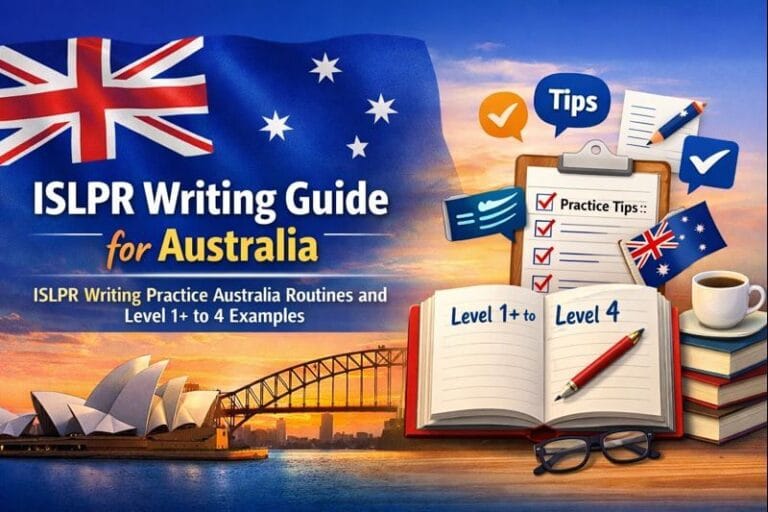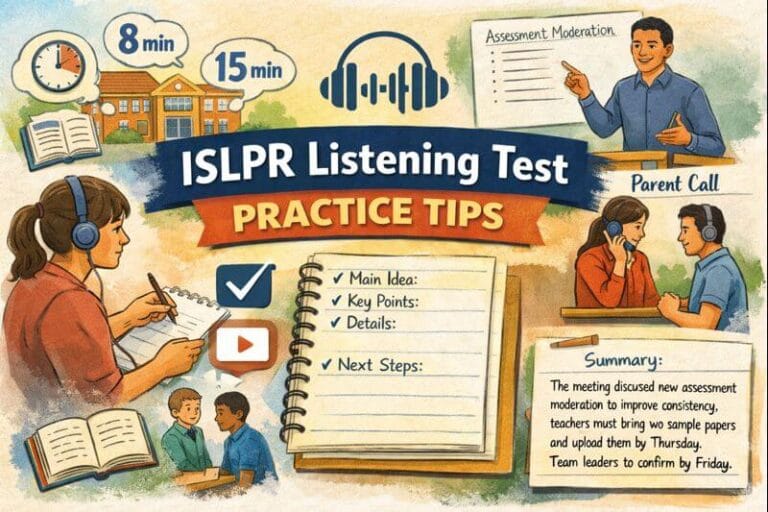Embarking on a teaching job in the Northern Territory (NT) of Australia is a journey filled with opportunities to inspire, educate, and shape the minds of tomorrow’s leaders.
In this comprehensive guide, we provide aspiring educators with a roadmap to navigate the diverse avenues available for securing teaching positions in the NT.
From exploring fixed-term teaching jobs to registering with the Teacher Registration Board, we equip you with the knowledge and resources essential for success in the dynamic field of education.
Securing a Teaching Job:
There are three types of teaching jobs you can get in the NT public schools. These are explained below:
- Exploring Fixed-Term Vacancies: The NT boasts a myriad of fixed-term teaching jobs across its diverse regions. Aspiring educators can peruse comprehensive listings to identify positions that align with their interests and expertise. Whether you’re drawn to the bustling city of Darwin or the serene landscapes of Alice Springs, the platform enables you to select your preferred region and connect directly with school principals via email. By expressing your interest and attaching a polished resume, you seize the opportunity to showcase your passion and dedication to making a positive impact in the classroom.
- Pursuing Ongoing Positions via NT Government Jobs: For educators seeking a long-term teaching job in the NT, the NT Government jobs website serves as a valuable resource. By registering an account on eRecruit and completing the online application form, you gain access to a wealth of ongoing (permanent) teaching jobs across various educational settings. Whether you aspire to teach in primary schools, secondary schools, or specialized educational programs, this platform offers a gateway to fulfilling career opportunities within the NT’s vibrant education sector.
- Leveraging the Teacher Sourcing Pool: Gain a competitive edge in the teaching job market by registering your interest and availability in the Teacher Sourcing Pool. By submitting your application, you ensure visibility to prospective schools seeking qualified staff to meet their staffing needs. Whether you’re open to contract positions or seeking opportunities for relief work, inclusion in the Teacher Sourcing Pool enhances your chances of securing rewarding teaching job tailored to your preferences and expertise.
Teacher Registration
At the heart of the NT’s commitment to educational excellence lies the process of teacher registration. Administered by the Teacher Registration Board of the Northern Territory, this rigorous process ensures that registered teachers meet the highest standards of competence, professionalism, and ethical conduct.
Eligibility Criteria:
To qualify for registration with the Teacher Registration Board, applicants must meet the following eligibility criteria:
Qualifications: Demonstrate possession of appropriate qualifications from recognized higher education institutions, including completion of a comprehensive teacher education course with supervised practice teaching experience.
Whether you hold a degree in education or have pursued alternative pathways to teaching, the Board evaluates your credentials to ensure alignment with the NT’s educational standards.
Competency: Prove proficiency in the English language and demonstrate the ability to teach in accordance with the Australian Professional Standards for Teachers.
The Board assesses your competence based on various factors, including your ability to engage with diverse student populations, adapt teaching strategies to meet individual learning needs, and uphold the highest standards of professionalism in the classroom.
Fitness and Propriety: Exhibit good character and conduct yourself in a manner consistent with the ethical standards expected of a teacher. The Board conducts thorough background checks, including reviews of criminal history and disciplinary records, to ascertain your suitability for registration.
By upholding the principles of honesty, integrity, and accountability, you affirm your commitment to serving as a positive role model and mentor to your students.
Professional Experience and Currency of Practice: Accrue a minimum of 180 days of full-time service within the five-year period preceding your application date to demonstrate proficiency and currency of practice in the field of education.
Whether you’ve served as a principal, classroom teacher, or educational administrator, your professional experience contributes to the enrichment of the teaching profession in the NT.
By staying abreast of current educational trends, pedagogical innovations, and best practices in teaching and learning, you ensure ongoing growth and development as an educator.
English Proficiency
Proficiency in the English language is a crucial aspect that the Board considers when assessing an individual’s qualifications for registration. To gauge this proficiency, the Board takes into account several factors.
Firstly, the Board considers whether the applicant’s qualifications for registration have been undertaken in English in specific countries.
These countries include Australia, Ireland, New Zealand, the United Kingdom, English-speaking Canada, or the United States of America. Qualifications obtained in these countries automatically demonstrate a certain level of English proficiency.
Alternatively, the Board also takes into account the applicant’s results in recognized English language proficiency tests. Two such tests are the International English Language Testing System (IELTS) and the International Second Language Proficiency Ratings (ISLPR).
International English Language Testing System (IELTS)
IELTS is available in two test formats: Academic and General Training. For registration purposes, the Board requires applicants to complete the IELTS test in the Academic format. This format specifically assesses an individual’s ability to handle complex and detailed argumentation, which is crucial for academic and professional settings.
In the IELTS test, scores are given on a band scale ranging from 1 to 9. A band score of 8 indicates a very good user of the English language who possesses full operational command and excels in handling complex arguments and detailed discussions. A band score of 7 indicates an operational command of the language.
To meet the Board’s requirements, applicants need to achieve an overall band score of 7.5 across all four parts of the test, namely Speaking, Reading, Listening, and Writing.
However, specific criteria must be met within each component. In the Reading and Writing sections, no score below 7 is allowed, indicating the importance of strong reading and writing skills. In the Speaking and Listening sections, no score below 8 is permissible, emphasizing the need for effective communication and comprehension abilities.
It is important to note that the Board may accept the results of an English language proficiency test undertaken by the applicant within two years from the date the Board receives the application for registration. However, any costs associated with these English language tests are the responsibility of the applicant.
IELTS tests are administered at centers in over 110 countries, making it accessible to individuals worldwide. For a comprehensive list of these centers, applicants can visit the official IELTS website.
In summary, proving proficiency in the English language is a significant aspect when seeking registration. Whether through qualifications obtained in specific English-speaking countries or by demonstrating proficiency in recognized English language proficiency tests such as IELTS, individuals can showcase their command of the language and their ability to handle complex arguments and discussions.
By meeting the Board’s requirements and obtaining the necessary scores, individuals can confidently pursue their registration goals.
IELTS tests are administered at centres in over 110 countries. A full list of centres is available on the IELTS website.
Resources for Practicing IELTS
If you’re looking to practice for the IELTS exam for your teaching job application or teacher registration, there are several resources available online. Here are a few options you can consider:
- Take IELTS – British Council: The British Council offers free IELTS practice tests on their website. These tests are designed to help you improve your listening, reading, writing, and speaking skills for the IELTS exam.
- IELTS Online: IELTS Online provides an opportunity to take the IELTS Academic test online. It offers the same test format and duration as the IELTS Academic test taken in a test center. You can choose where you want to take the test from, and the speaking test is conducted online via video call with an IELTS Examiner. It uses the same multi-layered security processes as the in-center test. Please note that IELTS Online is currently only available for the Academic test and is not accepted for immigration purposes.
- IELTS Online Tests: IELTS Online Tests provides free IELTS practice tests and sample tests. These tests can help you familiarize yourself with the IELTS exam format and improve your English level.
- IELTS.org: The official IELTS website also offers an online version of the IELTS exam. You can take the IELTS Academic test online from the comfort of your own home or any private and well-lit space with a stable internet connection. Before booking the online test, it’s important to confirm with the organization you’re applying to whether they accept the online version of the test.
Remember, practicing with these resources can help you familiarize yourself with the test format and improve your performance on the IELTS exam. Good luck with your preparation!
International Second Language Proficiency Ratings (ISLPR)
The International Second Language Proficiency Ratings (ISLPR) is a detailed scale that describes real-life language behavior at 12 levels, ranging from zero to native-like proficiency. It is a personalized English language test used to measure a person’s proficiency in English and other languages. The ISLPR test aims to encourage natural and realistic conversation, compared to other testing systems, by selecting listening, reading, and writing materials that meet the interests and needs of each candidate.
Proficiency Levels in ISLPR
In ISLPR, a score of 4 indicates Vocational Proficiency, which means that the person can use English fluently and accurately on all levels – personal, social, and in situations pertinent to their own ‘vocational’ fields. To be eligible for the ISLPR test, the Board requires that the applicant be awarded a score of 4 or higher in each of the macro skills of Listening, Speaking, Reading, and Writing. This ensures that the individual has a comprehensive command of the language across different language domains.
Teacher-Focused Assessment
For applications received after January 1, 2011, the ISLPR test must be undertaken at an approved testing site where the assessment is teacher-focused. This means that the assessment is conducted by accredited ISLPR testers who have a higher degree (Master or Ph.D.) in linguistics and language teaching, and have received specific training to observe a candidate’s real-life language behavior. The testers consider all the features that make up language and assess how they work together successfully in the candidate’s use of English.
Authenticity and Adaptability
The ISLPR test is designed to be more authentic than other approaches that use artificial item types, as it aims to reflect real-life language use. It supports a highly adaptive assessment procedure, making it better able to match the needs of different learners using the language in different domains and genres, at different proficiency levels, and with different vocational, academic, or other usage interests.
In summary, the ISLPR is a comprehensive language proficiency rating system that assesses a person’s ability to use English fluently and accurately across various language domains. It emphasizes real-life language behavior and is conducted by accredited testers with expertise in linguistics and language teaching. The ISLPR test is designed to be authentic and adaptable to meet the needs of different learners.
Application Process and Fees
Initiate the registration process by submitting your application along with the prescribed fee, which covers registration and processing costs. Graduates from Charles Darwin University may benefit from fee exemptions, while all applicants have the option to pay up to three years in advance. The fee, essential for funding the Board’s administrative functions and promoting the professionalism of the teaching profession, underscores your commitment to upholding the highest standards of excellence in education.
Check the official website to know the current fee structure.
Conclusion
As you embark on your journey to secure a teaching job in the Northern Territory, remember that each step you take brings you closer to realizing your dreams of making a meaningful difference in the lives of students and communities. By leveraging the resources and opportunities outlined in this guide, you position yourself for success in the dynamic and rewarding field of education. Join in the collective mission to foster a culture of learning, innovation, and excellence in the NT’s educational landscape. Together, we can inspire the next generation of leaders and empower them to achieve their full potential.







